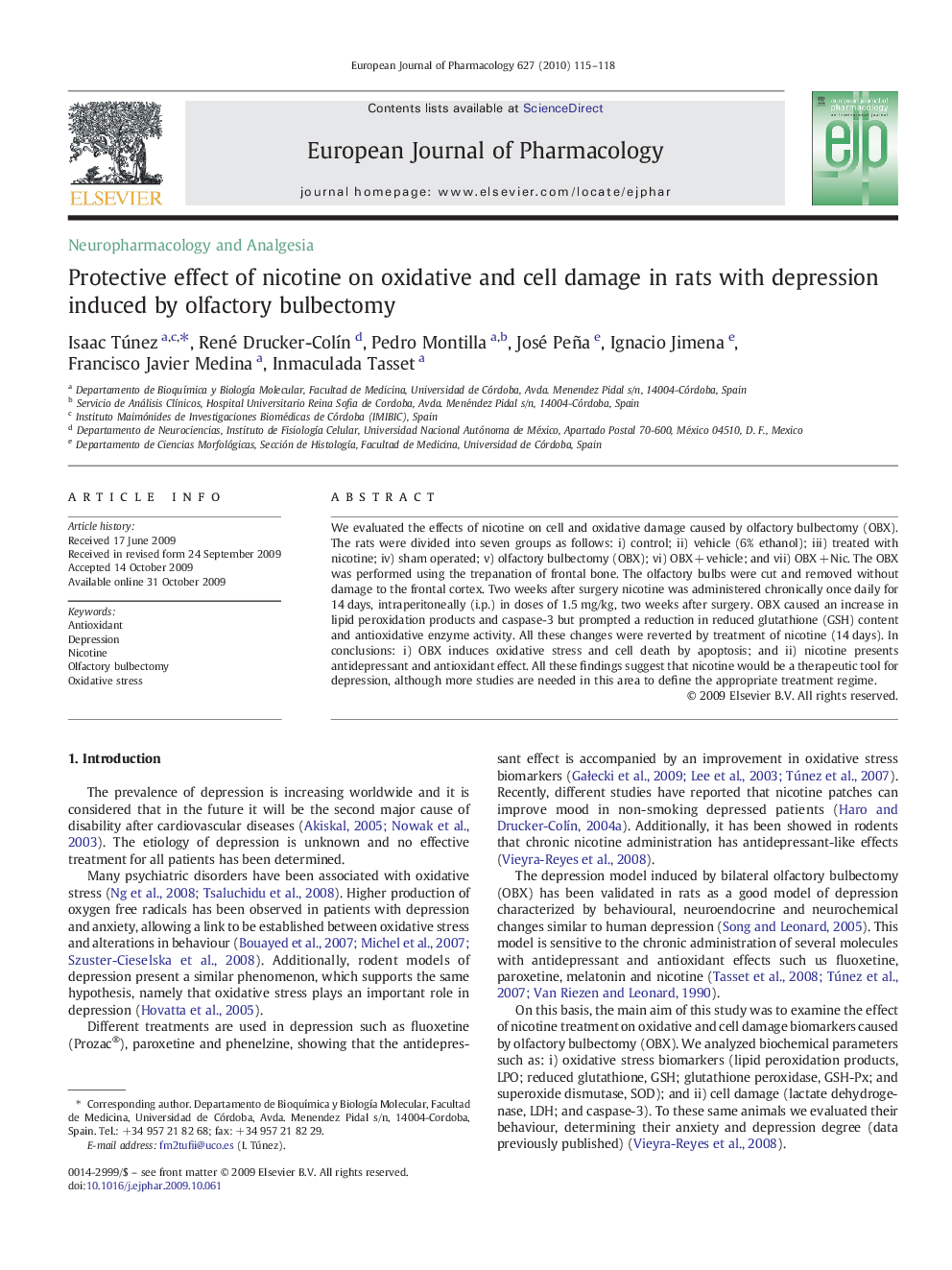| Article ID | Journal | Published Year | Pages | File Type |
|---|---|---|---|---|
| 2533753 | European Journal of Pharmacology | 2010 | 4 Pages |
We evaluated the effects of nicotine on cell and oxidative damage caused by olfactory bulbectomy (OBX). The rats were divided into seven groups as follows: i) control; ii) vehicle (6% ethanol); iii) treated with nicotine; iv) sham operated; v) olfactory bulbectomy (OBX); vi) OBX + vehicle; and vii) OBX + Nic. The OBX was performed using the trepanation of frontal bone. The olfactory bulbs were cut and removed without damage to the frontal cortex. Two weeks after surgery nicotine was administered chronically once daily for 14 days, intraperitoneally (i.p.) in doses of 1.5 mg/kg, two weeks after surgery. OBX caused an increase in lipid peroxidation products and caspase-3 but prompted a reduction in reduced glutathione (GSH) content and antioxidative enzyme activity. All these changes were reverted by treatment of nicotine (14 days). In conclusions: i) OBX induces oxidative stress and cell death by apoptosis; and ii) nicotine presents antidepressant and antioxidant effect. All these findings suggest that nicotine would be a therapeutic tool for depression, although more studies are needed in this area to define the appropriate treatment regime.
